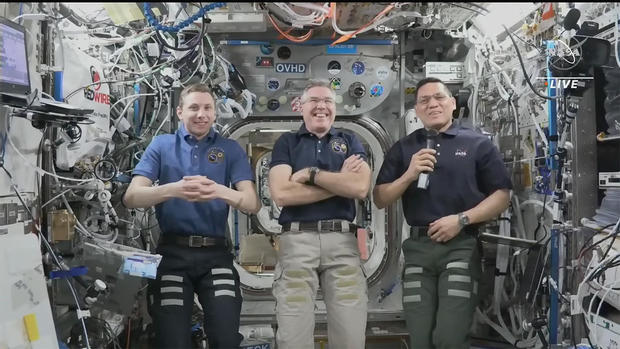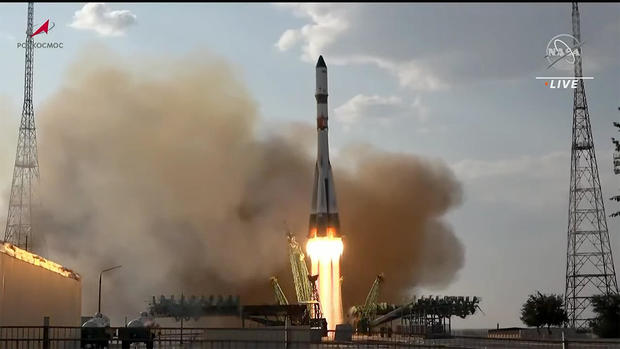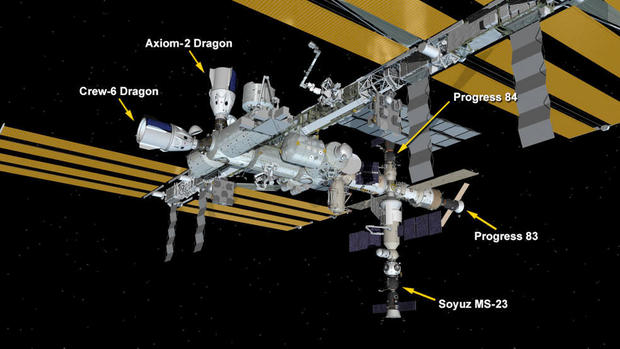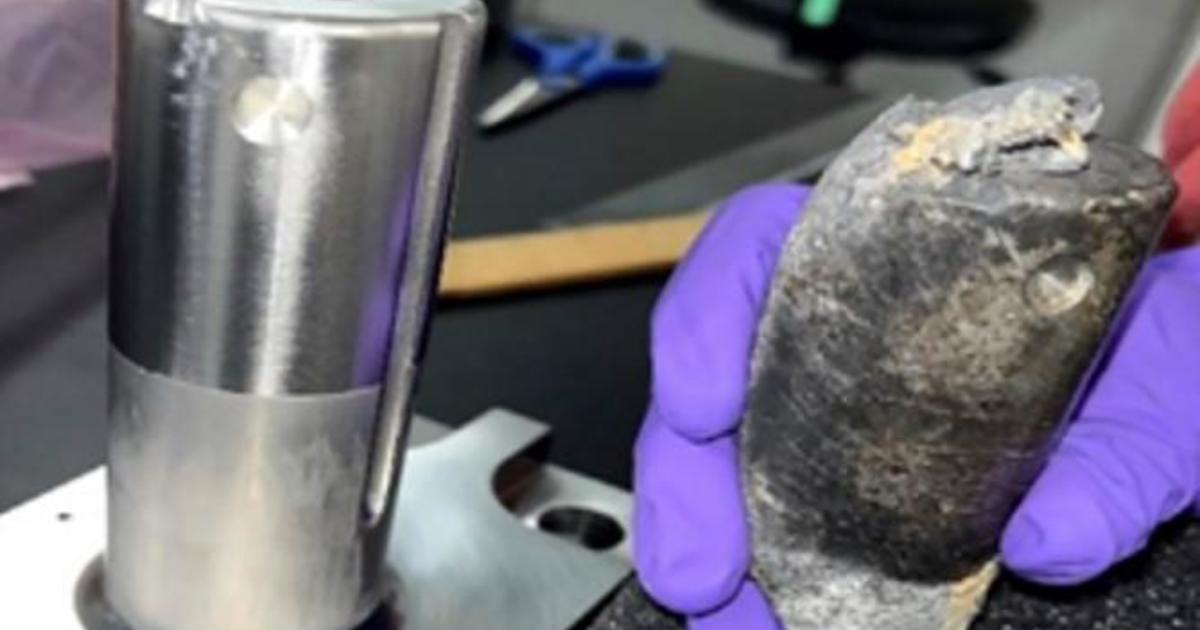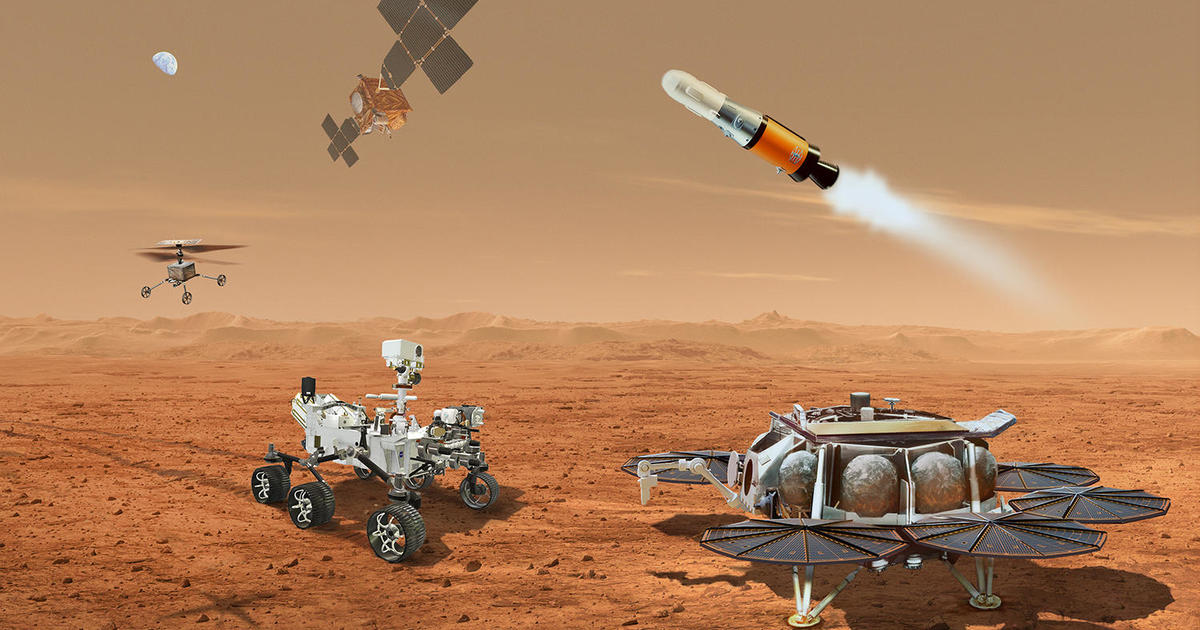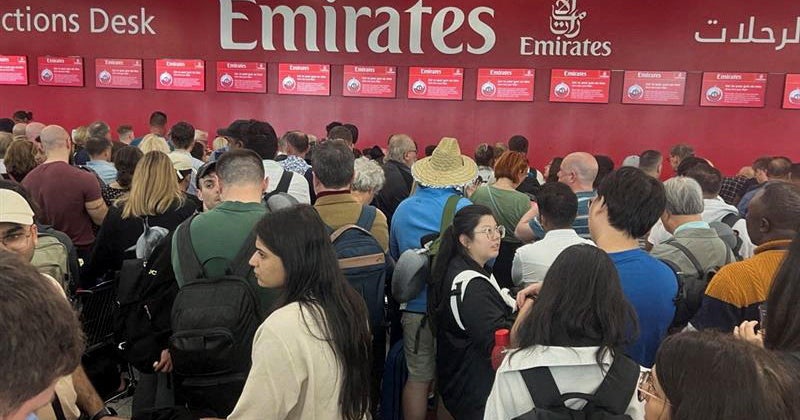Russian cargo ship docks at space station amid commercial crew visit
A Russian cargo ship blasted off Wednesday and delivered 2.7 tons of supplies and equipment to the International Space Station amid a full slate of research by the lab's NASA-sponsored crew and four visiting "private astronauts" carrying out their own science agenda.
The Progress cargo craft climbed away atop a Soyuz 2a.1 booster at the Baikonur Cosmodrome in Kazakhstan at 8:56 a.m. EDT, less than 48 hours after a SpaceX Falcon 9 rocket boosted a privately funded Crew Dragon capsule into orbit from the Kennedy Space Center in Florida.
That flight, chartered by Houston-based Axiom Space, carried retired astronaut Peggy Whitson, fiber optics entrepreneur John Shoffner and two Saudi astronauts —Ali Alqarni and Rayyanah Barnawi— to the station for eight days of research and public outreach with school kids across the Middle East.
The Ax-2 flight, the company's second NASA-sanctioned private astronaut mission, increased the space station's crew from 7 to 11. While conditions are more crowded than usual, NASA astronaut Stephen Bowen told The Associated Press the combined crews were coping.
"We've integrated them pretty well into the crew, and they're very busy ... doing a lot of work, which they brought with them," he said during an interview Wednesday. "It is kind of crowded at times, we do have some passageway issues (but) it works out pretty well. Really enjoying the company, actually."
While he was talking, the Progress continued its automated two-orbit rendezvous, catching up with the space station while cosmonaut Sergey Prokopyev, the station commander, monitored the approach from inside the Russian segment of the station.
He was ready to take over manual control and fly the Progress in for docking by remote control if necessary, but the spacecraft flew flawlessly, guiding itself to a precision docking at the lab's space-facing Poisk module at 12:19 p.m.
The Progress was loaded with 2.7 tons of supplies and equipment, including 1,080 pounds of propellant, 88 pounds of nitrogen, 926 pounds of water and 3,399 pounds of dry cargo.
After the Ax-2 crew departs next Tuesday and returns to Earth, SpaceX plans to follow up with a cargo launch of its own on June 3, sending up an unpiloted Dragon capsule from the same pad used by the private astronaut crew this past Sunday.
Along with the usual crew supplies, science gear and equipment, the Dragon capsule will be carrying two more roll-out solar array blankets that are part of an ongoing power system upgrade. They will be installed by Bowen and astronaut Woody Hoburg during spacewalks June 9 and 15.
On June 26, the SpaceX cargo Dragon, loaded with research samples and no-longer-needed equipment, will undock from the Harmony module space-facing port, the same one used by the Ax-2 crew, and return to Earth.
In early July, Bowen and his Crew 6 colleagues will strap into their Crew Dragon, undock and move the capsule from Harmony's forward port up to the port just vacated by the Cargo Dragon. That will clear the way for Boeing's Starliner crew capsule to dock at Harmony's forward port after launch July 21 on its maiden piloted flight.
Starliner astronauts Barry "Butch" Wilmore and Sunita Williams plan to put the ferry ship through its paces before NASA certifies it as safe for use ferrying astronauts to and from the laboratory in concert with SpaceX.
Crew 6 commander Bowen, Hoburg, United Arab Emirates astronaut Sultan Alneyadi and cosmonaut Andrey Fedyaev plan to undock and return to Earth on August 27, nine days after their Crew 7 replacements arrive, to wrap up a 178-day mission.
Prokopyev, cosmonaut Dmitri Petelin and NASA astronaut Frank Rubio then plan to come home aboard the Soyuz MS-23 spacecraft September 27, 12 days after their replacements —two cosmonauts and another NASA astronaut— reach the station.
Prokopyev, Petelin and Rubio launched to the lab last September and originally planned to return to Earth in March. But a coolant leak forced the Russians to launch a replacement ferry ship, delaying their return by six months.
At touchdown, they will have logged 371 days in orbit, a new American single-flight space endurance record.
"On a personal level, it was pretty tough," Rubio said of the unexpected mission extension. "Just because I was missing my family and I knew I was going to miss some pretty big milestones, for my (four) kids, especially."
That included birthdays, an anniversary, one son's high school graduation and a daughter finishing her first year in college.
"We've tried really hard to stay in touch with one another," Rubio told the AP. "I've kind of been just (trying) to be disciplined about staying involved in their lives as much as possible. My wife, my kids, they've been troopers, and they've really handled it incredibly well."
